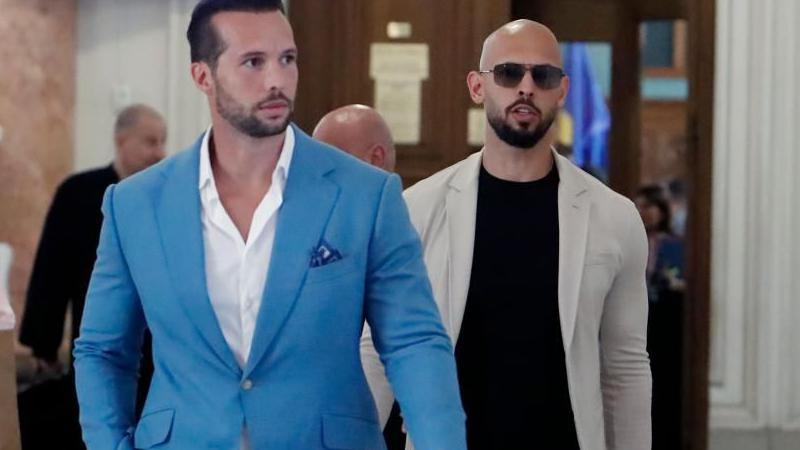Tate brothers did business in orthodox way - lawyer

Court heard that Andrew Tate (right) and his brother Tristan should be allowed to keep their money
- Published
A lawyer for the controversial influencer Andrew Tate has told a court in London that payments to his online businesses were handled in a “perfectly orthodox” way.
Police are attempting to claim £2.8m in what they say is unpaid tax on the earnings of Mr Tate, his brother Tristan, and a third person known as J.
The court has heard the brothers were “serial” and “brazen” tax evaders – and had earned £21m from online businesses including Only Fans – the website known for pornographic content.
They were accused of having set up a “spaghetti trail” of bank accounts.
Martin Evans KC, for the Tates, on Tuesday said the way they money was moved was “perfectly orthodox”.
“There were transfers into the Tates’ account. That is the beginning, middle and end of it. What there isn’t is a separation," he told the court.
He said the pair had not “cheated” their way to the money and so should be allowed to keep it.
Andrew Tate, 37, and Tristan, 35, were not in court for the two-day hearing.
Tate brothers accused of being serial tax evaders
- Published8 July 2024
They were arrested last December over allegations of rape, human trafficking and forming a criminal gang - charges they deny and on which they are due to stand trial in Romania.
Their bail conditions do not currently allow them to leave the European Union.
Sarah Clarke KC, for Devon and Cornwall Police, said they had paid no tax in any country on their earnings.
She said the money had been “washed around” several bank accounts in the UK.
Mr Evans told the court: “Wash is not a banking term. The banking term is transfer. What happened was entirely orthodox; numerous transfers from the payment platform to the Tates."
On Monday, Ms Clarke quoted from a video posted online by Andrew Tate, in which he said: "When I lived in England I refused to pay tax."
The court heard he said his approach was "ignore, ignore, ignore because in the end they go away".
The court also heard that the brothers had "a huge number of bank accounts" in the UK, seven of which have been frozen.
The proceedings are civil, which uses a lower standard of proof than criminal cases.
The chief magistrate, Paul Goldspring, will decide on the balance of probabilities whether the police are entitled to freeze bank accounts and assets worth £2.8m belonging to the Tates and J.
He has said he will reserve his judgment until a future date.